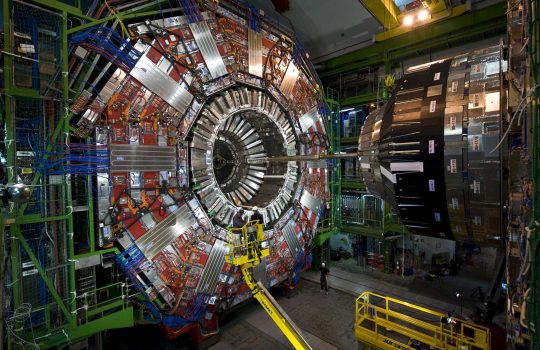Editor’s note: This is an adapted excerpt from an article published by Lawrence Livermore National Laboratory. Fermilab scientists contributed to the award-winning Spack software package management tool, whose initial development was led by Livermore.
In November, the trade journal R&D World Magazine announced the winners of the annual R&D 100 Awards, sometimes called the “Oscars of invention,” in an online post and emails to winners.
Among the winners was Spack, a software package management tool for high-performance computing applications, a project led by Lawrence Livermore National Laboratory, a DOE national laboratory.
Spack is an easy-to-use, versatile and scalable software package management tool for high-performance computing applications. It simplifies and accelerates building and customizing software by automating the build workflow, thus reducing deployment time for large software stacks from weeks to hours.
In 2013, Todd Gamblin, a computer scientist at Lawrence Livermore National Laboratory, created the first prototype of Spack to automate the many tedious software builds he and colleagues were forced to perform manually.

More than 2,300 monthly active users use Spack software worldwide. Image courtesy of Spack
Today, Spack is widely available as open-source software. Spack’s original 100 or so packages have grown into a library of more than 3,500, and a large and active community of more than 450 contributors regularly adds features and improvements.
Spack is now used for software deployment on six of the world’s top 10 supercomputers, and it has been adopted by a number of high-performance computing centers and software development communities.
Even outside of high-performance computing centers, Spack has had a major impact. It has been picked as an end-to-end development tool within the high-energy physics community, based at Fermilab in the U.S. and CERN in Switzerland.
Fermilab scientists contributed to Spack’s core functionality as well as software definitions specific to high-energy physics.
While Livermore led the initial development of Spack, the software’s co-developers include Fermilab and Argonne National Laboratory, the Center for Climate Systems Research, Columbia University, Iowa State University, Kitware Inc., NASA Goddard Institute for Space Studies, the National Energy Research Scientific Computing Center, Perimeter Institute, Swiss Federal Institute of Technology Lausanne, the University of Hamburg, the University of Illinois at Urbana–Champaign and the University of Iowa.
Fermilab is a DOE national laboratory supported by the Office of Science.



